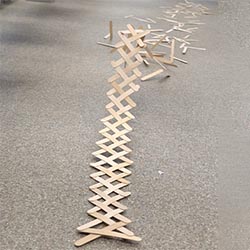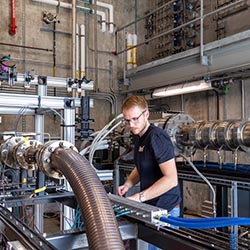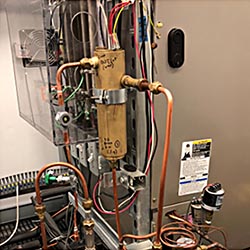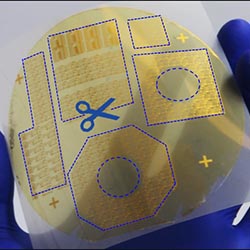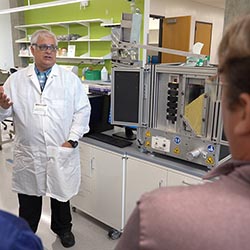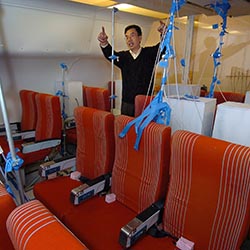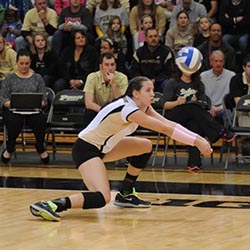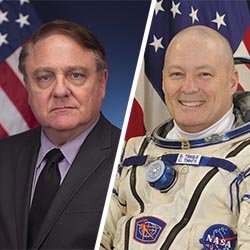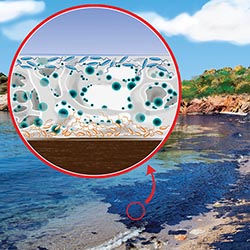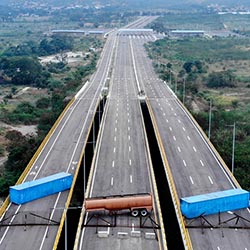March 3, 2020
Finite Element Analysis of Stick Bombs
Popsicle stick bombs are chain reactions made from interweaving popsicle sticks in a specific pattern. A staple of YouTube videos and children's science classes, they demonstrate the basics of kinetic energy. But there are complex physics behind those cascading sticks, and thanks to award-winning research from an undergraduate student at Purdue, we know a lot more about them.

